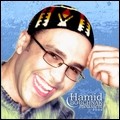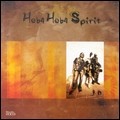Since the start of the war on Gaza, the Israeli government and media have been vigorously promoting the fact that anti-Zionism and anti-Semitism are two sides of the same coin. Thus silencing any criticism targeting the Israeli government and its occupation policies against Palestinians.
While anti-Semitism refers to hostility, prejudice towards, or discrimination against Jews simply because they are Jews, anti-Zionism stands for opposition to the Zionist ideology. The latter is based on displacing and expelling the Palestinian people to establish a Jewish state on the historical land of Israel as mentioned in the Torah.
Morocco was not an exception to the Israeli media campaign, as Hebrew media portrayed the demonstrations held in the Kingdom to support the Palestinian people and denounce the killing of civilians as anti-Semitic.
In an article titled «Morocco’s Jews ponder future: ‘This is not the country we knew'», the Jewish News Syndicate (JNS) wrote that «despite warming relations between Rabat and Jerusalem in recent years, the situation has taken a turn for the worse».
«Tens of thousands of Moroccans took to the streets post-Oct. 7, with many chanting antisemitic slogans and holding placards reading phrases such as ‘Down with Zionism’ and ‘Palestine is Hamas’», it added.
Quoting Kobi Ifrah, co-founder of Kulna, a nonprofit organization that aims to preserve and promote Jewish Moroccan heritage, the article by JSN reads that «a lot of Israelis with Jewish roots considered Morocco to be their second home». «Since the war broke out, we see at the protests here the expression of hatred for the Jews, for Israelis and support for Hamas. We expected basic levels of solidarity and we did not get it», said Ifrah.
The agency even claimed that many kosher restaurants were closed in the Kingdom after October 7, and that Jewish pilgrimige trips (Hiloula) were cancelled. The same source spoke to Raphael Trojman, a specialist in kosher products and kosher luxury vacations. «It changed overnight. Jews must reassess their attachment to the country and their relationship with Moroccans (…) Until the authorities clarify the position towards Moroccan Jews and Israelis, we will be taking our business elsewhere», he argued.
Accusing Moroccan politicans of anti-Semitism
On the other hand, Israeli newspaper Israel Hayom said in an article entitled, «Antisemitism has reared its head in Morocco. What's the reason?» that anti-Semitism has risen in Morocco after the outbreak of the war in Gaza, referring to the sit-ins in solidarity with Palestinians.
The newspaper even accused the former head of Morocco’s government and current Secretary-General of the Justice and Development Party, Abdelillah Benkirane, of being anti-Semitic, after he expressed his support for the Hamas movement.
The newspaper also accused the former Secretary General of the United Socialist Party, Nabila Mounib, of anti-Semitism, and said that the Moroccan politician accused a «Moroccan Jew named Guy Der'i, who is 80 years old, of being a Zionist infiltrator in the Moroccan government, despite the fact that he worked in the government for many years».
Mounib «claimed that most of the descendants of Moroccan Jews ‘participated in a war against our brethren in Palestine, slaughtered many of them. Is that a Jew? No? That's a Zionist. Zionism is an extremist and dangerous ideology», Israel Hayom wrote.
The matter is not limited to Morocco. Since the beginning of the current war in the Gaza Strip, Israel, its media, and the countries supporting it have insisted on accusing anyone who opposes the policies of the extreme right-wing government in Tel Aviv of being «anti-Semitic». Anti-Semitism is also deliberately confused with opposition to Zionism, to silence criticism targeting Israel and its daily crimes in the Gaza Strip and the West Bank, which have claimed the lives of thousands of people since October 7.





 chargement...
chargement...













